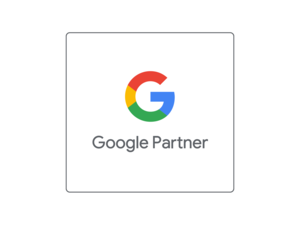We’d all like to be innovators. Of course we would. True innovation is a rare and precious thing. What is unfortunately neither rare or precious is the marketing ‘buzz-word’. Our industry just loves jargon and it’s about time we admitted that sometimes our genuine enthusiasm for all things shiny, new and innovative sometimes leads us down the dangerous path of making up new words - instead of trying just a little harder with the old ones. Whilst this can be a useful practice if your client brief is a catchy and original product name, it can be downright confusing if used in your wider marketing material.
Stop! Step away from the jargon
Here at Pod, we’re as guilty as the next person of occasionally getting swept up in the marketing-speak and acronyms available to us; those catchy words, Tweet-worthy abbreviations, and phrases that help us say everything in a faster and punchier way. However, an almost incomprehensible paragraph (in an otherwise well-written and informative trade publication) recently made us stop and take a step back. When language starts to obscure rather than clarify meaning and when you find yourself regularly Googling acronyms, words and phrases just to get through your inbox each day, you know things have gone too far…
So, whether it’s your internal processes, the services you are offering, or your clients’ products, it’s time to ditch the jargon. The use of plain English in your proposals means you’ll impress clients without baffling them. Follow the same rules for their communications and you’ll position them as intelligent, approachable and trustworthy. Let’s not forget: even B2B companies with high tech or niche products are talking to humans. Accuracy and transparency should be the goal in everything we say, otherwise we run the risk of alienating the very people we are trying to engage with.
The dreaded buzz word - every industry has them. Here are three examples of words and phrases from the world of marketing which have been around for a while now but which still leave many of us scratching our heads:
1. Dark social
It sounds ominous, but we’ve all done it. If you’ve ever copy-and-pasted a web url into an email to share it with a friend or colleague, you’ve contributed to dark social. It’s not called ‘dark’ because it has any depraved or malevolent purpose. The real reason is far less glamorous: it’s called dark simply because it’s impossible to track accurately. Unlike other forms of sharing which are easily traced with the use of web analytics tools, private sharing of links (via email, text, Whatsapp or Facebook Messenger for example), doesn’t let analytics know the referrer. It will show as direct traffic, but we know that’s not true. All this missing data is driving us marketing types crazy because content sharing in this way shows what people are really interested in. We’d like to use the sharing data to improve our messages and target our audiences but it’s hiding from us. There are things we can do to make measurable social sharing easier – like using shortened urls and including share buttons on our content – but, for now at least, we remain in the dark about where a significant percentage of our social sharing comes from.
2. Omnichannel
Don’t get this one mixed up with cross-channel or multi-channel; it’s different. We think. Described by some sources as the ability to provide constant engagement options and a completely seamless customer experience across all platforms including social media, website, mobile, call-centre and ‘bricks-and-mortar’, this basically looks a lot like cross-channel done well. For others, omnichannel means something more: unleashing the potential of data sharing between organisations and even competitors, to put the customer at the centre of the experience, provide a more personalised experience and enable cross-brand (should that be omni-brand?) as well as cross-channel marketing based on their individual requirements.
We’re still not 100 per cent sure we agree with the distinctions, but we do know that an integrated approach to marketing is essential and that focusing on each marketing channel in isolation would be to miss an opportunity. Call that whatever you like.
3. Co-originate
This one is perhaps less mysterious but no less baffling. It’s a word that has started creeping in to every-day use, like ‘ping’ which used to be onomatopoeia and is now a verb for something we can do with emails or money. Unfortunately, whilst “shall I ping it over?” sounds informal and friendly, “we should co-originate this” is self-important and a bit pompous compared to “we should pool our ideas”.
Whilst we prefer, “let’s put our heads together to get this project started”, if you want to co-originate with us, we won’t say no. Brainstorming went out of fashion ages ago, but we’ll bring some big paper and pens just in case.
The Pod is a full-service agency – we’re here to help with all things marketing and PR, and can also offer consultancy services. If you’d like to talk to us about your marketing objectives, please get in touch.






 Emma Crofts
Emma Crofts
 Alexander Costello
Alexander Costello
 Jessica Keynes
Jessica Keynes
 Raven Wheatley-Hawkins
Raven Wheatley-Hawkins






.png)


